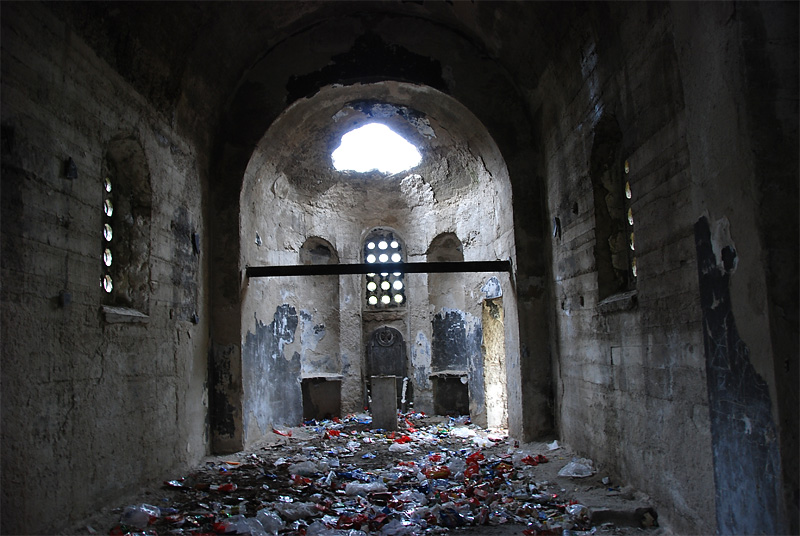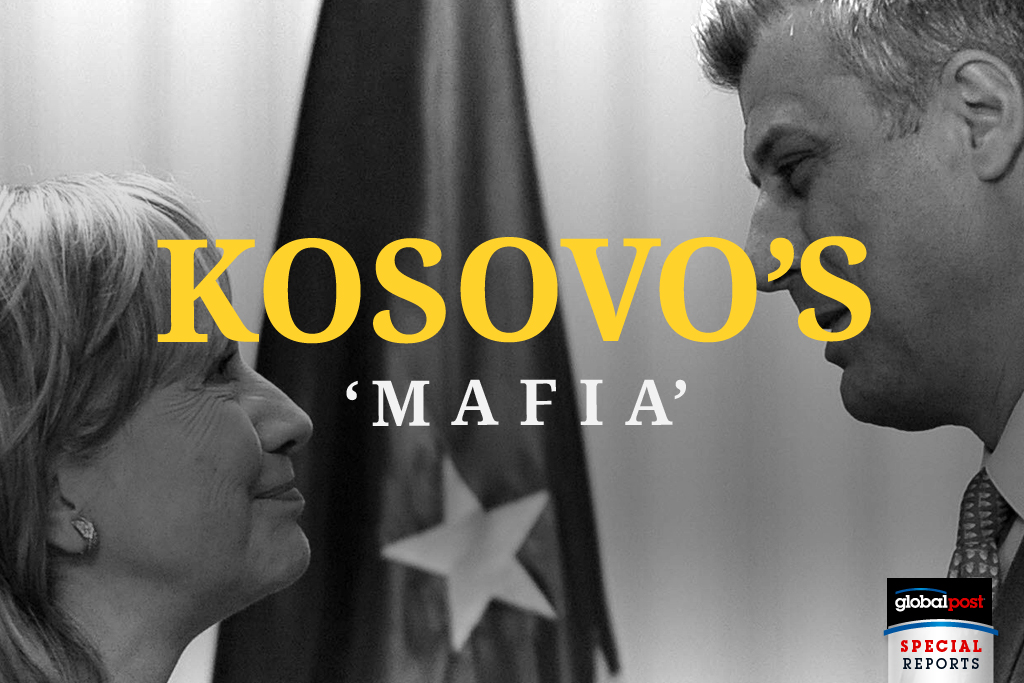
Views: 1379
In the world before Christianity and Islam took hold far more religions and philosophies existed than do now. Around the middle of the first millennium BCE Daoism, Buddhism and Zoroastrianism began to become established and quickly spread in Asia, no doubt impacting on already long established religions of the time but without such wide-reaching repercussions.

These new religions appeared in a world where a vast amount of religions already existed. The Mesopotamian religion, is the oldest known and recorded organised religion, consisting of worship of some two thousand deities. Although not explicitly tied to the state and rulers (as was the case with Egypt) it was deeply embedded in the culture of the Sumerian, Akkadian, Babylonian and Assyrian empires over some four thousand years, spreading its influence over a vast region and, it is thought, influencing Canaanite, Greek and possibly Egyptian and Jewish religions during that time.
Like many other religions it co-existed with others and was transmitted by cultural shifts brought about by war and trade as various empires expanded and collapsed. Whether it was state sponsored or the ‘official’ religion throughout its empire, as in Egypt, is unclear but it does appear that their religiosity was at the core of their culture. In Egypt, their polytheistic religion, although transforming over time was clearly tied to the monarchy (Pharaohs) and implemented by a highly organised, state sponsored, priesthood, deeply embedded within the social and political hierarchy. As a great imperial power, its religion had a significant impact on other cultures and religions such as Greek polytheism and possibly some aspects of Christianity. Certainly the cult of Isis was widespread across the Greco-Roman world, throughout the Mediterranean region and also in parts of Africa.
Although it is generally regarded that religious intolerance was the norm in antiquity, it was not always the case. In India Buddhism and Jainism, alongside Hinduism, were allowed to flourish in the Mauyra and Gupta dynasties. In China Buddhism coexisted with Daoism and Confucianism along with folk religion over two millennia with very little suppression an intolerance in that time period. In the Achaemenid empire of Cyrus the Great (after 550BCE), religious tolerance was enshrined in the laws passed, covering an area thought to contain half the population of the world at the time. Within the much later Sassanid empire(around 400CE) Judaism, Manichaeism and Christianity were tolerated alongside Zoroastrianism which was dominant in western Asia. During such times both the environment and people were able to prosper – free from the constant destructive onslaught of war.
Unfortunately the situation was not to last. Both Zoroastrianism and Manichaeism, from being hugely popular faded into obscurity due to violent competition with Christianity and Islam. The political and religious union of the Roman empire following Constantine left little room for toleration of rival religions, including the Greco-Roman Paganism that had been so dominant for over a millennium. In Armenia and Georgia both Zoroastrianism and Paganism suffered as the state chose to enforce a policy of Christianity as the official religion, while at the same time centralising and consolidating economic and political influence. The 5th century ushered in a new era of religious persecution which also served to consolidate social and political power.
Islam quickly spread beyond Arabia following Muhammad’s death in 632, swiftly taking the Byzantine and Sassanid empires by storm, although Byzantium survived in gradual decline for another eight hundred years. Although current troubles surrounding Islamic extremism may lead many to think otherwise, Islam has historically had a more tolerant attitude to other religions than Christianity. Zoroastrianism, which was dominant in western Asia was persecuted by Islam and actively discouraged for a millennium. Despite this, today in Iran (often considered a pariah state) Christianity, Zoroastrianism and Judaism coexist peacefully alongside the majority religion of Islam, albeit with less rights.
At the end of the 11th century Pope Urban II initiated a Christian war against Islam in defence of Byzantium to reclaim the Holy Land. Two hundred years of Crusades ended ultimately in failure and led to the destruction of Byzantium in 1453 and Muslim incursions into Europe thereafter. Apart from a few decades, the Muslim Ottoman (Turkish) empire was at almost constant war with Christian Europe, until its final demise at the end of World War I. During the Crusades, and up until the end of the 17th century, Christians took the opportunity to also persecute Jews, with mass expulsions and massacres throughout Europe during much of that period.
The Muslim world also came under attack from the Mongols during the 13th century, the low point of which was the destruction of the 500 year Caliphate and city of Baghdad – bringing to an end the Abbasid dynasty and what was considered the golden age of Islam. Most of the Mongols were Tengriist but Genghis Khan permitted and encouraged religious freedom across his new empire, so long as he faced no resistance. Tough resistance from Muslim rulers led to a typical Mongol response, a bloodbath across the Islamic world, which almost destroyed Islam in Asia. Freedom of religion generally allowed Tengriism, Christianity, Buddhism, Judaism, Manichaeanism, Taoism and Islam to coexist peacefully, although gradually three of the four Mongol Khanates became Muslim, with the Chinese Khanate adopting Tibetan Buddhism.
With the discovery of the Americas and subsequently the rounding of the Cape of Africa (Good Hope) in the 15th century, the Spanish and Portuguese unleashed a unprecedented wave of Christian oppression and religious intolerance far beyond it’s previous domains. Beginning with Columbus’ genocide in Hispaniola, religious persecution, enslavement, murder and environmental destruction took place across the New World and coastal Africa. Soon to be joined by other emerging imperial forces, such as England, a wave of colonisation, extermination and forced conversion took place, over hundreds of years. The repercussions of this are still very much in evidence today with continents environmentally ravaged and many peoples becoming extinct, diminished and relocated, with their indigenous cultures and religions completely or nearly destroyed.
Despite a gradual move towards secular governments throughout the world individual, organisational and state sponsored religious intolerance has continued to plague the world into the modern era. Some the most horrific religious oppression in history has occurred in the last century or so with the genocide of Armenian Christians by the Ottomans and the Nazi Holocaust against primarily Jews and Jehovah’s Witnesses. Religious and social oppression of Australian Aborigines, Native Americans, indigenous tribes in South America, in Apartheid South Africa and throughout the former Soviet Union and China has all taken place within the last hundred years.
Even now, the world has witnessed the barbarism of Daesh (Islamic State) in the Middle East and the recent oppression and migration of the Muslim Rohingya people in Myanmar by the Buddhist majority. Although only recently re-ignited this new horror is part of a long conflict that originated during World War II. Having been on opposing sides during the war, the Buddhist regime and the Rohingya have been in sporadic conflict since 1947, culminating with the mass eviction (in 2017) of Rohingya people into neighbouring Bangladesh.
Currently there are estimated to be some ten thousand distinct religions in existence in the world, despite the eradication of many faiths during our tumultuous history. Unfortunately we have still not figured out a way to co-exist in peace both on an international level, between theocratic states, or within individual religious communities.
Part of the problem, no doubt, is created by the adoption of religion at a state level. Where secularism or at least state guaranteed religious tolerance is the norm the level and frequency of religious intolerance is lower. Throughout our sad collective history there have been brief islands of calm, religious plurality and toleration, instigated at state level, that prove that peaceful co-existence was and still is possible.
Many religions claim to have the right answers, to be the one true religion or to have the sole authority of the divine. Given that there are so many religions in the world, it seems rather bizarre that just one could rightfully lay claim to exclusive divine approval. In truth what religion a person adheres to is largely dictated by social and geographical factors – the community and location in which one grows up.
If one is able to put aside the correctness of polytheism, henotheism (many aspects of the one) or monotheism, all religions point to the hand of the divine in the creation of the universe and life within it. In a certain sense all religions can be said to be both right and wrong at the same time, in that they describe or allude to the divine truths of our existence, but in a way that can hardly be satisfactory to all.
All religions have ideas about morality and decency but these are not necessarily the same and indeed are quite often contradictory. For instance, murder would generally be considered wrong, almost universally, however there are circumstances such as ‘honour killings’ in some religious cultures that are considered acceptable. However, in some religions even to kill a fly would be considered a great sin. So, who is to decide what is correct and what is not, who has a divine mandate and who does not?
As human beings we are somewhat like goldfish in a small tank – with our limited perception we attempt to understand the world around us and ourselves, to discover the nature of life and the universe and to find meaning within the chaos and confusion of life. Like the goldfish we are limited by our intelligence our senses and our placement within a universe that is bigger than our imaginings. I believe that it is true to say that our ability to comprehend the mysteries of existence are very limited, perhaps more so than we can possibly realise.
The belief in one true religion has been the cause of conflict the world over or been the justification for it. Religion has been misguidedly been used to justify war and colonisation, economic predation and the ecological destruction that accompanies it. While humanity has been foolishly arguing, fighting and jostling for dominance in the world we have been distracted from the raging fires that now surround us, that we have created ourselves.
 It is clear that the ‘end times’ talked of in many faiths could well be upon us, but if that is so, it is surely not due to an act of God but as a result of our own carelessness, stupidity and obsession with competing with our fellow humans. At this time, we have the capacity to destroy the world with nuclear weapons or to poison it for many thousands of years through the careless use of nuclear power. We have taken warfare to new depths with increasingly efficient ways to slaughter one another, even without the direct involvement of human soldiers any more. Worse still, through over-population and over-exploitation of nature we are pushing the world towards ecological collapse; which could bring extinction for many species including our own.
It is clear that the ‘end times’ talked of in many faiths could well be upon us, but if that is so, it is surely not due to an act of God but as a result of our own carelessness, stupidity and obsession with competing with our fellow humans. At this time, we have the capacity to destroy the world with nuclear weapons or to poison it for many thousands of years through the careless use of nuclear power. We have taken warfare to new depths with increasingly efficient ways to slaughter one another, even without the direct involvement of human soldiers any more. Worse still, through over-population and over-exploitation of nature we are pushing the world towards ecological collapse; which could bring extinction for many species including our own.
While our governments waste fortunes on larger and more dangerous armies economic hardships and poverty continue to plague the world – the poor suffer the ravages of climate change while a powerful minority continue to feed their insatiable greed for more. Instead of being united by faith, albeit of different strands, peoples are often divided and turned against each other to the benefit of their manipulators and to the detriment of humanity and the world at large.
In truth we have reached a great crisis for humanity and for the world – climate change, caused by our shortsightedness, is merely one of the symptoms of our disease. It is well past the time when we should put aside our religious and ideological differences and focus on the great problems of our time i.e. saving humanity from itself.
In the past empires and civilisations collapsed due to economic, religious and ecological factors in addition to military failures. Such collapses were localised not systemic, but now we no longer have the luxury of repeating the mistakes of human history. If we continue down a path of violence, destruction, vast inequality and intolerance then there is little hope for humanity. History has proven that times of peace, cooperation and toleration are possible. If we can overcome our differences, while there is still time, and truly work together in cooperation to transform our societies then we at least have a chance to save humanity from an avoidable tragedy.

Originally published on 2018-02-20
About the author: Luke Eastwood is a legal celebrant and writer in Ireland. You can view more of his work at www.lukeeastwood.com
Source: Global Research
Origins of images: Facebook, Twitter, Wikimedia, Wikipedia, Flickr, Google, Imageinjection, Public Domain & Pinterest.
Read our Disclaimer/Legal Statement!
Donate to Support Us
We would like to ask you to consider a small donation to help our team keep working. We accept no advertising and rely only on you, our readers, to keep us digging the truth on history, global politics and international relations.
FOLLOW US ON OUR SOCIAL PLATFORMS








